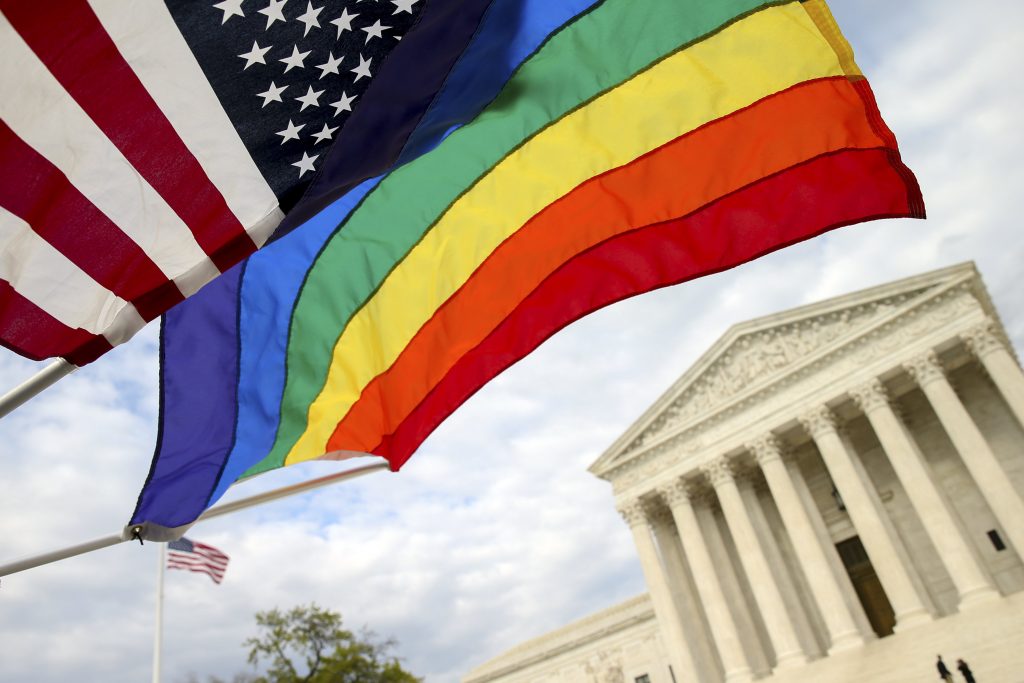A recent survey by College Pulse and the Religious Exemption Accountability Project (REAP) detailed the harsh realities of LGBTQ+ students at Christian colleges. According to this survey, queer students at Christian universities are more likely to face harassment, isolation, and other adverse events, all of which create starkly different mental health outcomes than those of their cisgender-heterosexual peers.
The report was conducted between January 28 and February 6, 2021 on 3,000 LGBTQ+ students enrolled in four-year degree programs at Christian colleges and universities. Findings demonstrate that 12% of students identify as non-heterosexual, 2% of students identify as a gender minority, and most of these sexual and gender minority students are closeted.
The report details responses from queer students at Christian colleges, most of which are members of the Council for Christian Colleges & Universities (CCCU). Sexual minority students were three times more likely to report depression and anxiety, and just as likely to have seriously considered suicide.
Gender-nonconforming students are at an even higher risk; on average, gender minority students experience double the number of adverse experiences, are seven times more likely to experience sexual assault, and 22% have reported bullying. Nearly half (47%) of gender minority students at these Christian universities reported feeling they do not belong on their campus, compared to 29% of sexual minority students, and 17% of straight students. These realities contribute to vastly different collegiate and mental health experiences for queer students compared to straight students.
This survey was commissioned by the REAP, an organization dedicated to advocating for the empowerment of queer students at taxpayer-funded religious colleges and universities. REAP is led by Director Paul Southwick, a queer lawyer who attended a Christian University and represents LGBTQ+ students, children, and employees in civil rights matters.
“This discrimination and abuse is funded by taxpayers. These findings should serve as a wake-up call for all higher education stakeholders to address the ongoing abuse taking place at publicly funded institutions,” said Southwick. He also explained that many Christian schools, while private, still receive federal funding in the form of grants and student financial aid.
LGBTQ+ anti-discrimination protections in education were greatly expanded under Title IX during the Obama administration and the Biden
administration’s recent order to federally protect sexual orientation has put this issue under increased scrutiny. However, private colleges that receive federal funding can still claim an exemption on religious grounds. This poses a concerning fate for queer students at Christian universities and holds implications for our own private Christian university.
Eastern University receives funding from the CCCU as well as the federal government. Eastern has very unclear narratives for queer students who attend the university, as well as for its faculty and staff members. Our queer students are not exempt from the statistics revealed by this report and are not fully protected by our student codes of conduct. Though students at Eastern University are permitted to be out on campus, the university’s stance on the LGBTQ+ issue is ambiguous. Class after class of students have raised concerns on the implications of this stance for the safety and well-being of queer students attending Eastern University.
A class action lawsuit has been filed against the Department of Education over this rights violation, including students from Eastern University and associated colleges.
For more information about the Religious Exemption Accountability Project, or to join the fight, visit reap.org.
Sources: REAP.org, NBC, The Collegiate Post, Metro

